|
|
|
|
Overcoming long-standing cultural barriers is the invisible bond that binds women across countries and regions in Africa. Though small steps are being made, research also continues to reveal ways in which women are disproportionately affected by COVID-19. In West Africa for instance, women are the mainstay of fishing. But they are underpaid, undervalued and largely invisible. Ifesinachi Okafor-Yarwood and Sayra van den Berg Bhagwandas set
out how COVID-19 has compounded the particular challenges that women face.
Unpaid labour burdens, unequal inheritance rights and outright discrimination also mean that women are less likely to seek leadership positions. Damilola Agbalajobi says that these factors help explain why there are few women in the Nigerian political scene. She offers tips on what can be done about it.
In Kenya, progressive clauses in the 10-year-old constitution are beginning to change the gender equation in the country’s courts. There are many more women magistrates, more judges and now for the first time the chief justice is a woman. Martha Gayoye explains why having more women in charge of courts matters.
|
Moina Spooner
Commissioning Editor: East and Francophone Africa
|

|
|
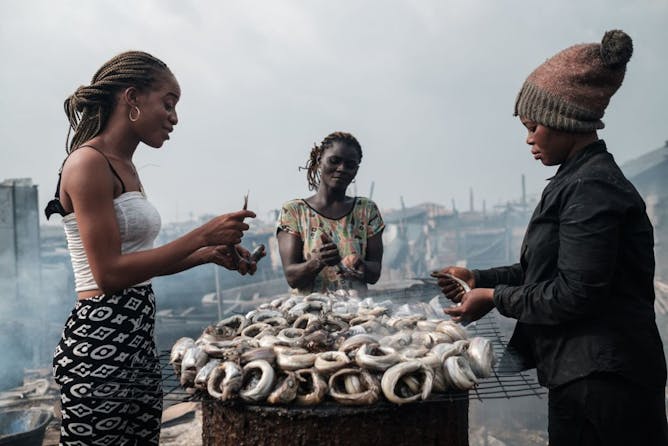
Women make smoked fishes - locally called Okporoko - at Egede informal settlement in Port Harcourt, Nigeria.
YASUYOSHI CHIBA/AFP via Getty Images
Ifesinachi Okafor-Yarwood, University of St Andrews; Sayra van den Berg Bhagwandas, University of St Andrews
The contributions that women in West Africa's fisheries make to the sector are widely un(der)paid, undervalued and largely invisible.
|
|
|
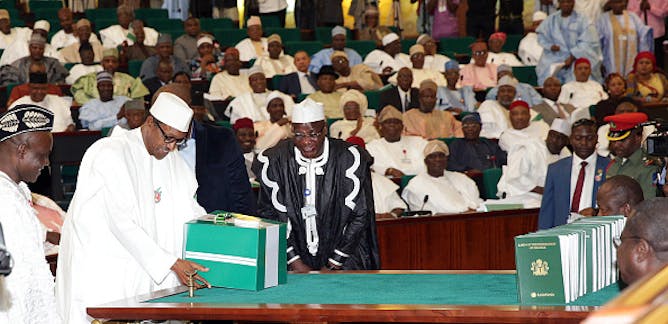
Damilola Agbalajobi, Obafemi Awolowo University
The equitable participation of women in public life is essential to building and sustaining strong, vibrant democracies.
| |
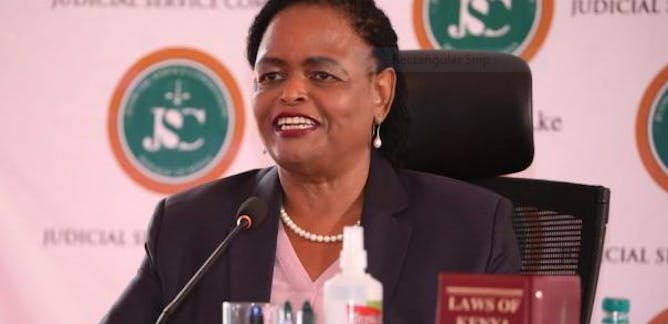
Martha Gayoye, University of Warwick
Justice Martha Koome's ascendance to the role of Chief Justice raises hope and expectations among many for a better world for women and children.
|
|
|
Arts, Culture + Society
|
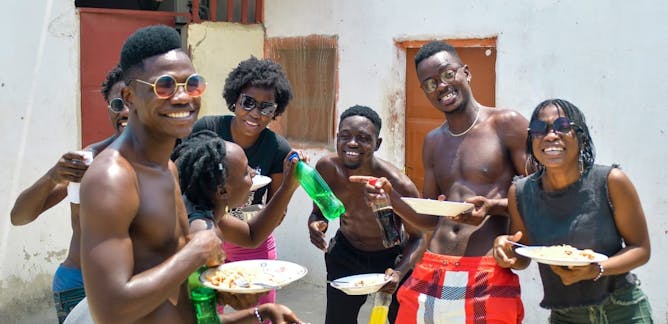
Francesca Negro, Universidade de Lisboa
A year later, it's clear that the dance promotes a conscious concept of Africanity – sowing feelings of tolerance and contentment that have conquered international audiences.
| |
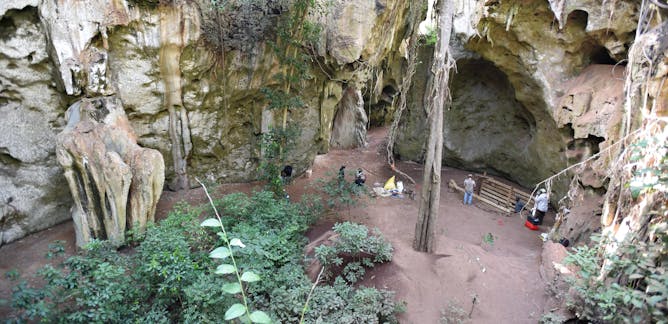
Alison Crowther, The University of Queensland; Patrick Faulkner, University of Sydney
A small child buried almost 80,000 years ago in a cave in Kenya shows how ancient humans treated the dead.
|
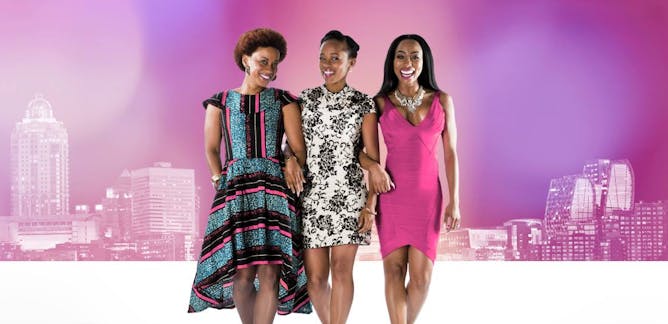
Pier Paolo Frassinelli, University of Johannesburg
The rise of the black romantic comedy in South Africa dovetailed perfectly with the advent of streaming services - creating a box office phenomenon.
| |
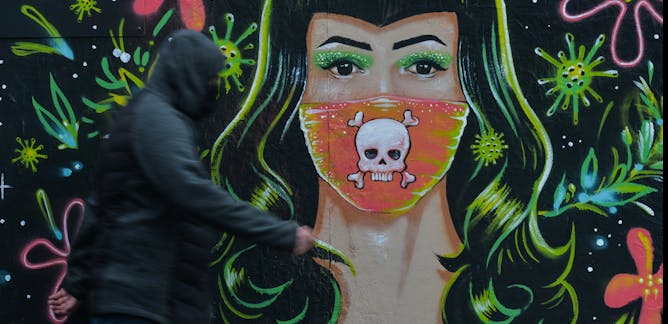
Sanya Osha, University of Cape Town
It took black folk unimaginable resources of creativity, humanity, humour and generosity to detoxify the N-word for their own collective sanity.
|
|
|
Politics
|

Jeffrey Conroy-Krutz, Michigan State University
Digital media shutdowns in Africa will lead to higher economic costs and greater public outrage.
| |
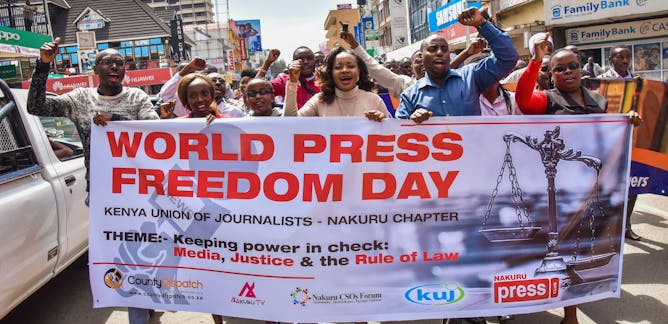
Wambui Wamunyu, Daystar University
No matter what tactics are used to muzzle, restrict, limit, or censor information, trustworthy information that serves the public good can still find its way to those who matter most: the citizens.
|
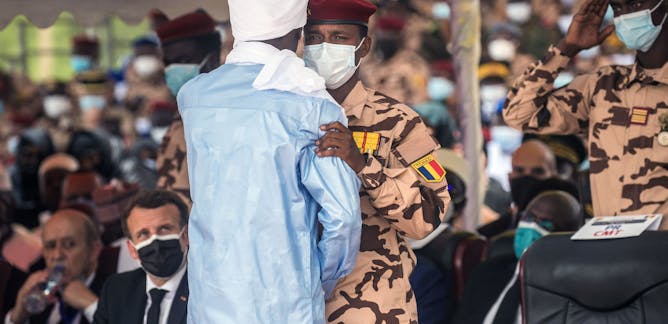
Laura-Stella Enonchong, De Montfort University
The recent spate of military takeovers, most recently in Chad, highlights a developing trend by armed forces in Africa which overtly subvert constitutional governance.
| |
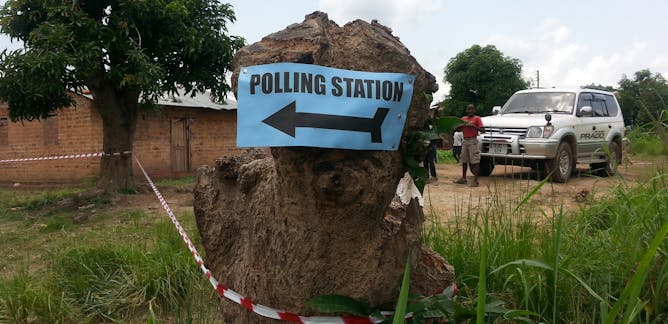
Nicole Beardsworth, University of Warwick
Distrust of the electoral commission runs deep in the opposition, which may well lead to increased tensions ahead of and following the polls.
|
|
|
Business + Economy
|
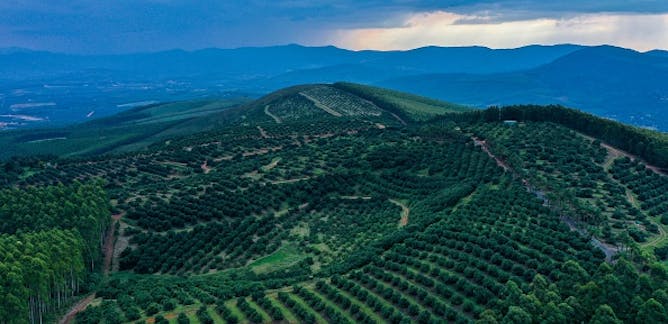
Wandile Sihlobo, University of the Witwatersrand
Government support for farmers, higher rainfall and grain imports have helped sub-Saharan Africa stave off food insecurity, but the region isn't out of the woods yet.
| |
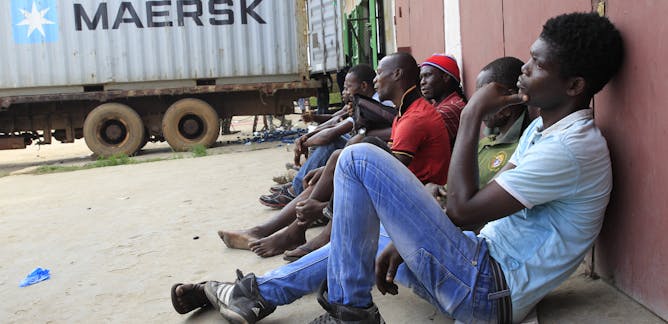
Wim Naudé, University College Cork
Since 1999, extreme poverty has declined while rates of young people in education and employment have risen. Without investment though, the impact of the pandemic could see this progress imperilled,
|
|
|
Environment + Energy
|
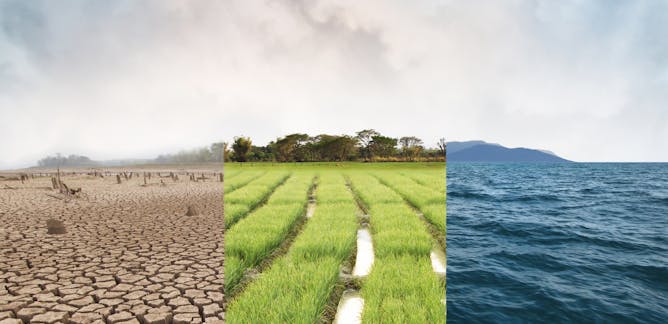
Nicholas P. Simpson, University of Cape Town; Christopher Trisos, University of Cape Town
A holistic view of climate change risk considers climate hazards, exposure, vulnerability and the responses to these. It also takes into account how multiple risks interact.
| |
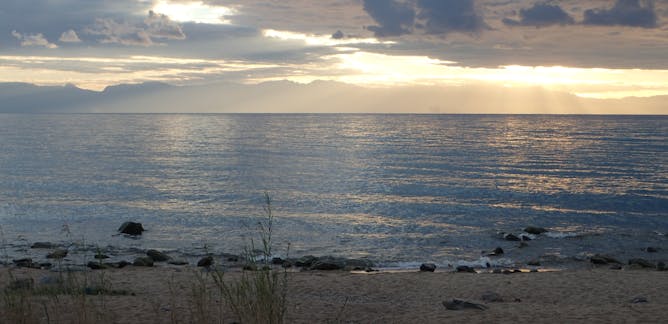
Jessica Thompson, Yale University; David K. Wright, University of Oslo; Sarah Ivory, Penn State
Combining evidence from archaeology, geochronology and paleoenvironmental science, researchers identified how ancient humans by Lake Malawi were the first to substantially modify their environment.
|
|
|
Education
|
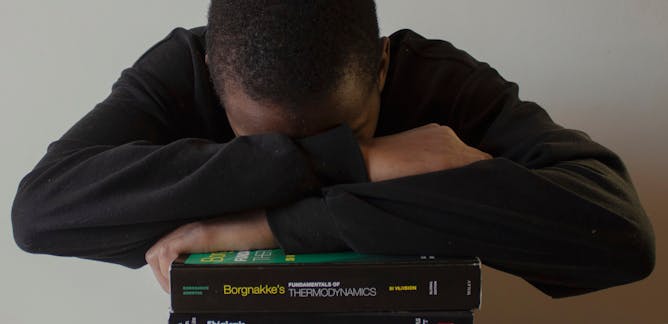
Emmanuel Ojo, University of the Witwatersrand; Annie Burger, Stellenbosch University; Anthony J Onwuegbuzie, University of Cambridge; Bryan Jason Bergsteedt, Stellenbosch University; Samantha Adams, Stellenbosch University; Talitha Crowley, Stellenbosch University
Ultimately, these studies will help us to make sense of how the pandemic is reshaping higher education.
| |
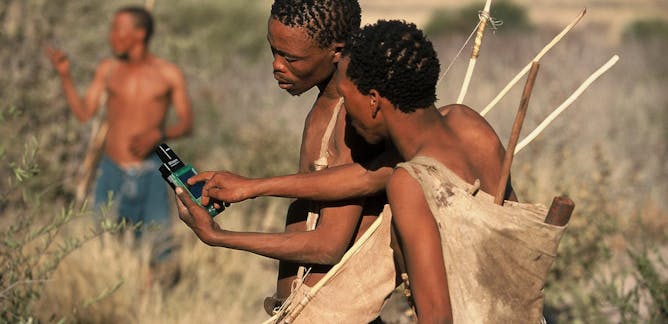
Glynis Joy Humphrey, University of Cape Town; Louis Liebenberg, Harvard University
The term "citizen science" is intended to widen the network of people whose contribution to science is acknowledged. But the word “citizen” can be problematic.
|
|
|
Health + Medicine
|
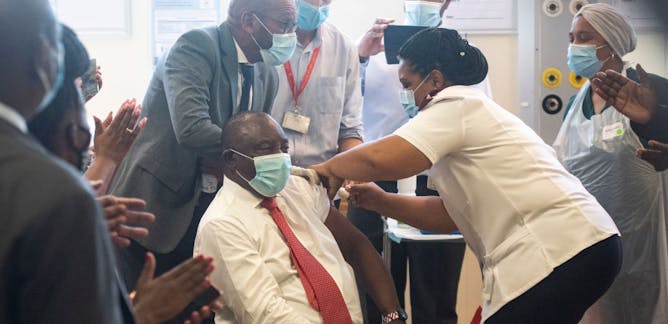
Heidi Larson, London School of Hygiene & Tropical Medicine; Raji Tajudeen
Recent uncertainty over blood clots and vaccine expiration dates have taken a toll on public confidence.
| |
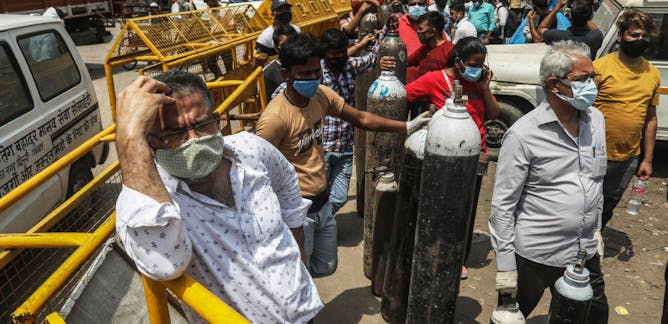
Hamish Graham, Royal Children's Hospital; Adegoke Falade, University of Ibadan
An effective oxygen system requires prompt recognition of who needs oxygen, a reliable oxygen supply and safe delivery to those who need it.
|
|
|
| |
Featured events
|

|
10 Marais Street, Stellenbosch, Stellenbosch, Western Cape, 7600, South Africa — Stellenbosch University
|
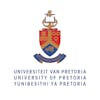
|
Future Africa, Pretoria, Gauteng, 0083, South Africa — University of Pretoria
|

|
MS Teams, Western Cape, 7600, South Africa — Stellenbosch University
|

|
Zoom, online, Zoom, online, Gauteng, Zoom, online, South Africa — University of Pretoria
|
|
|
|
| |
| |
| |
Would you like to republish any of these articles?
|
|
It’s free to republish, here are the guidelines.
Contact us on africa-republish@theconversation.com in case you need assistance.
|
| |
| |
| |
| |
|
|
|
|
|
|
|